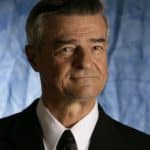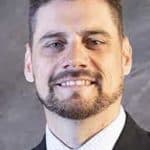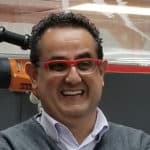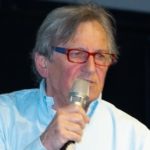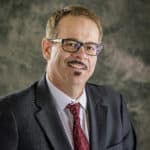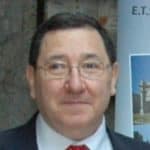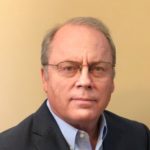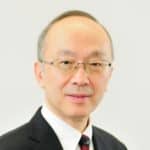First Call for Papers
Welcome to the first annual conference on Laser Shock Peening (LSP21), which has been established with the primary goal of proliferating Laser Shock Peening technology around the globe. The common thread that will run through this two-day event will be the use of LSP for industrial applications, which includes research and development activities.
This event will include global LSP leaders, LSP visionaries, panel discussions, and networking opportunities. For more details about registration and agenda, periodically visit the event’s webpage LSP21 Event.
Topics:
We are now accepting abstracts that support the primary conference goal on the following topics:
- Industrial laser peening applications – component specific applications and benefits
- Laser peening system technologies – new equipment facilitating industrial laser peening
- Laser peening methodologies – methods of laser peening to reduce process variation and increase throughput
- Analytical models facilitating the rapid implementation of laser peening
- Applied laser peening research with focus on near term applications
The purpose of this virtual event is to advance the use of laser shock peening for industrial applications, promote the developments of laser peening, and proliferate laser peening technology around the globe.
The application of engineered residual stresses is used every day in industrial applications. They have been primarily used to increase component durability and reliability by mitigating the effects of surface-initiated fatigue. Engineered residual stresses are also used to form components to specific shapes. Current applications of engineered residual stresses can be found in a wide range of products across all market sectors that fabricate metal component.
Event topics include applications of laser peening and the benefits to the component and the end user, to the tools and method to laser peen a component to achieve the desired results, and for the applied research activities in laser peening to significantly enhance the application and benefits of laser peening as an industrial application.
This event will be hosted virtually worldwide to facilitate and promote continued conversations in laser peening. Currently, abstracts are being accepted for consideration in the virtual event. Please send your abstracts to lsp21@lspt.com
This is a non-exhaustive list of topics. Other topics may be added, depending on the number submissions. This is only a two-day event, so please submit your topic and abstract as soon as possible because speaking times will be limited.
This event will be virtual within time blocks to accommodate worldwide attendance. Presentations must be in English.
Attendance is free for presenters.
You can email the organizer at LSP21@LSPT.com to ask questions about this event.
Featured Speakers for LSP21
LSP Technologies is pleased to announce confirmed Visionary Speakers for LSP21. Our event agenda will accommodate various time zones across the globe, plus on-demand sessions.
Dr. Allan Clauer – Retired Chief Metallurgist of LSP Technologies and world-renowned pioneer of laser peening, who played an integral role in the evolution of laser peening technology. His current interests include the further development of laser shock peening and improving the strength properties of metals and alloys.
Dr. Georgiadis started his career in 1998 in electrical construction. He joined civil service in 2001 at NSWC Panama City, FL working in Mine Warfare as an engineering flight specialist with 40 hours of flight time in the H-60 conducting Airborne Mine Countermeasures (AMCM) flight testing and design. During 2005 and 2008, he served as a science advisor at the Pentagon within OPNAV N95 Expeditionary Warfare. In 2009, he transferred to PEO LCS, PMS 495, Mine Warfare, as the Assistant Program Manager for the Airborne Laser Mine Detection System. In 2012, he was assigned to PEO Subs where he worked in SEA 073 S&T, and in 2014 he became the Supervisory Acquisition Manager at PMS 415, Undersea Defensive Warfare Systems. In early 2015, he left civil service and became the CTO at Hepburn and Sons LLC where he was instrumental in standing up the technology transition division. Now he is a part time Senior Engineering Consultant at Hepburn and also serves as the Director of Systems Engineering at Florida State University where he is a Professor.
Dr. Domenico Furfari is the Technical Advisor for Structural Analysis at the Airbus Airframe Competence Centre. His main areas of interest range from new technologies for fatigue enhancement of metallic structures (e.g., Laser Shock Peening) to novel repair techniques for embodiment in typical aircraft commercial MRO (Maintenance Repair Overhaul) environment.
Eli Yudkevich is the CEO of a manufacturing aerospace consulting business, Eli has been involved with military, UAV and civil aerospace programs. Eli has held positions such as Manufacturing Engineer, Head of Manufacturing Engineering, Chief of Infrastructures and Machinery Purchasing, Deputy Director of Structures Directorate, and CTO of Product Division. Since 2016, Eli has been providing professional consulting services to clients from Israel and beyond. He has a degree in Mechanical Engineering and Business Administration.
Dr. José L. Ocaña got his MSc. (1979) and his PhD. (1982) in Industrial Engineering (Energy) at the Polytechnical University of Madrid (Spain). He was the Chair Professor of Mechanical Engineering at the ETSII-UPM School of Engineering and Director of the UPM Laser Centre at this University (1999-2016). Dr. Ocaña is an active promoter and participant in national (Spain) and worldwide R&D initiatives in the field of scientific and industrial applications of high power lasers, especially in high-intensity laser-matter interaction, laser welding, laser surface treatments, laser micromachining, laser additive manufacturing and on-line monitoring and control of industrial laser applications. Author/coauthor of more than 200 scientific papers and more than 250 communications in the field of laser technology and applications.
William Sims is the Director, Chief Engineer, Major Projects for Entergy Nuclear Services, Inc., who oversees all of Entergy’s peening projects. During his 32-year career with Entergy, Mr. Sims has had many first-of-a-kind designs and projects. Notably in relation to peening, Mr. Sims served as chairman of the Electric Power Research Institute’s Materials Research Program (MRP) Assessment Committee. While chairman, he led the development of MRP-335 to allow the use of water jet and laser peening to mitigate degradation of Alloy 600 Nuclear Components, which was approved by the NRC during his tenure and later NRC approved use of two ASME Code Cases for reactor vessel head penetrations and piping butt welds. Mr. Sims holds a Bachelor of Science degree in Mechanical Engineering from the University of Arkansas.
Dr. Yuji Sano is a program manager (PM) of Institute for Molecular Science (IMS) and a specially appointed professor of SANKEN, Osaka university. Currently he is serving as a PM of a Mirai program of JST (Japan Science and Technology Agency). His team has been developing electron acceleration technologies by laser for XFELs (x-ray free electron lasers), ion acceleration for cancer therapy. He is also working on laser peening technology using compact lasers.


